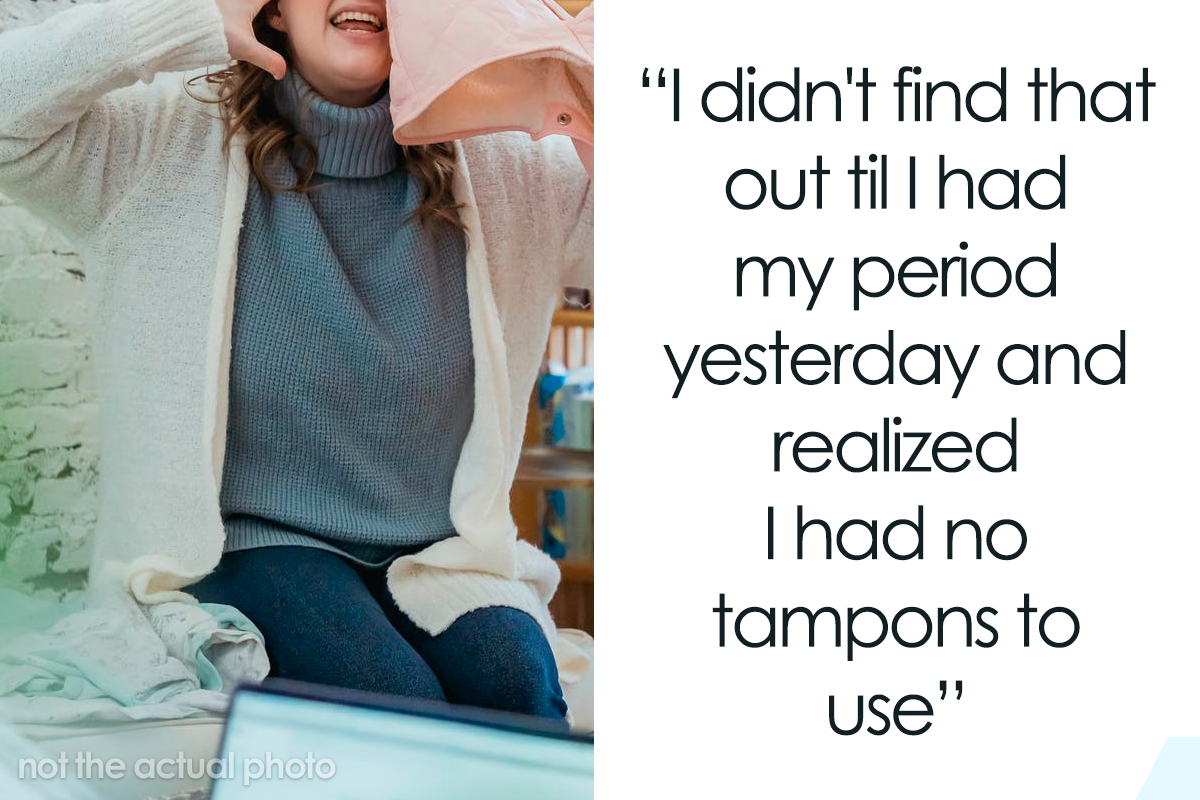
Woman Is Forced To Hide Tampons From Husband Who Hates Them, Finally Snaps When He Throws Away The Whole Box
Your body, your choice. Bottom line and no questions asked. Especially when it comes to hygiene products a person uses. But this story a woman shared on the AITA subreddit is about everything but that, and her husband’s wish to control her crossing personal boundaries.
“My husband Ryan hates them, he never truly gave a reason other than just say… he doesn’t feel comfortable with me using them,” the author wrote, referring to tampons that she started using recently. Turns out, Ryan hates tampons so much that he even threw away the whole box when he found it hidden.
That’s when the author had enough. “I lost it and told him he had no right to do this and told him to get over himself already,” she said and asked people in the community if she was right to yell at him like this. Read her whole story below, and be sure to share your thoughts about this whole situation in the comment section.
Recently, a woman shared how her husband threw away her tampon box she had hidden from him because he “hates them”
Image credits: Pexels (not the actual photo)
Image credits: ThrowraRyan7697
“There’s no reason to put period blood into a special gross-out category,” the expert warns
To find out more about the common misconceptions surrounding sanitary products, we spoke with Danela Zagar, Intimina Global Brand Manager. Just like tampons, menstrual cups are often the target of many myths widespread in our society.
One of the myths Zagar named is that “it’s not healthy to put plastic in my vagina for hours at a time.” She explained when it comes to menstrual cups, manufacturers use “medical-grade silicone to manufacture them. The name means exactly what it sounds like: this is the same silicone used in doctor’s offices and operating rooms, and it’s been deemed safe by the FDA for long-term wear inside the body.”
Another common misconception that some people with a gap in menstrual knowledge still believe in is that “periods are unsanitary and you should avoid touching your own blood,” says Zagar. However, even when inserting or removing a menstrual cup or a tampon, “you get a little period blood on your fingers,” she said and added that “It’s unavoidable, but not a reason to freak out because period blood is no different from any other bodily mucous.” She noted that “Of course, you should wash your hands before and after inserting a cup, but there’s no reason to put period blood into a special gross-out category.”
Education around periods is still woefully lacking worldwide and it’s time to destigmatize them
Education around periods is still woefully lacking worldwide, especially for young adults at the very brink of puberty, Zagar said. “Intimina, as a brand dedicated to women’s intimate health, is on a mission to educate about periods and the importance of good reproductive health. Periods should be destigmatized and discussed as a normal function of the female body.” Recently, they issued a book called “The Wonder Girls Guide Book” which aims to fill the hole left by inadequate educational programs, shame, and taboos around periods, to strike up the conversation about an entirely normal part of growing up.
Moreover, Zagar argues that education is key when it comes to menstrual hygiene products. “Intimina’s survey on young girls conducted for Women’s Day showed that 87% of respondents had guidance through menstrual product options. 87% use pads, and 36% prefer tampons, but the majority of respondents are well aware of the benefits of using menstrual cups.”
And this is what people thought of this whole situation
"he hates a lot of stuff that I do but "puts up" with it anyway." That to me reads like a giant huge red flag before we even get to the tampon issue.
Thought the same. Girl has to run while she can.
Load More Replies...You've only been married two months, which means the divorce will be comparatively easy. Heck, after such a short marriage, you might be able to simply get an annulment! Which I recommend you start now, because this self-absorbed idiot control freak is only going to get worse.
Im Spain at least the annulment is possible in the first three months. Obviously this post is likely to be older but i hope that she got it in time.
Load More Replies...Huge red flag! *snicker* If you want kids, please don't have them with this controlling, gaslighting, insecure man. Imagine a young girl having her first period, is that the father you want for her? Don't even get a hamster with him, you deserve better! If you do want to work this out, because he has a ton of good qualities that you somehow forgot to mention and is normally a decent man, which you also forgot to mention, drag him to pair therapy. Best of luck!
FORGET THERAPY! THERE IS NO HELP FOR AN ABUSIVE A*****E LIKE HIM!
Load More Replies..."he hates a lot of stuff that I do but "puts up" with it anyway." That to me reads like a giant huge red flag before we even get to the tampon issue.
Thought the same. Girl has to run while she can.
Load More Replies...You've only been married two months, which means the divorce will be comparatively easy. Heck, after such a short marriage, you might be able to simply get an annulment! Which I recommend you start now, because this self-absorbed idiot control freak is only going to get worse.
Im Spain at least the annulment is possible in the first three months. Obviously this post is likely to be older but i hope that she got it in time.
Load More Replies...Huge red flag! *snicker* If you want kids, please don't have them with this controlling, gaslighting, insecure man. Imagine a young girl having her first period, is that the father you want for her? Don't even get a hamster with him, you deserve better! If you do want to work this out, because he has a ton of good qualities that you somehow forgot to mention and is normally a decent man, which you also forgot to mention, drag him to pair therapy. Best of luck!
FORGET THERAPY! THERE IS NO HELP FOR AN ABUSIVE A*****E LIKE HIM!
Load More Replies...

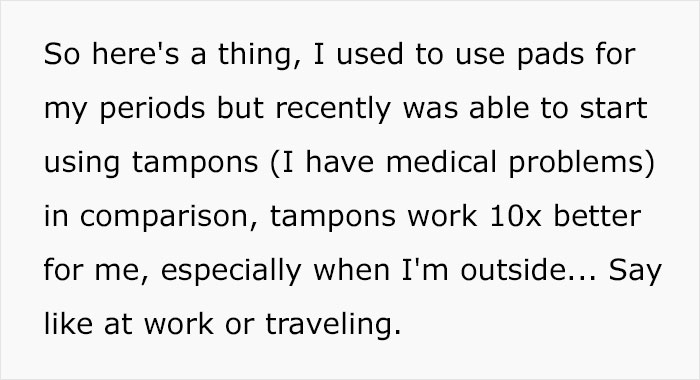




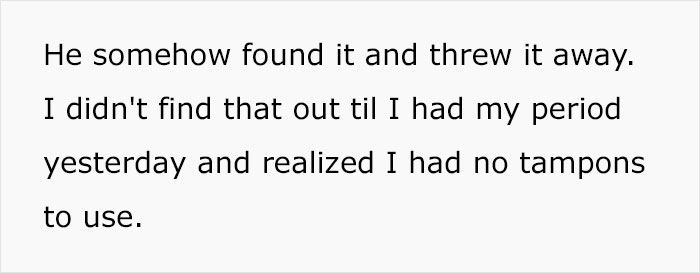
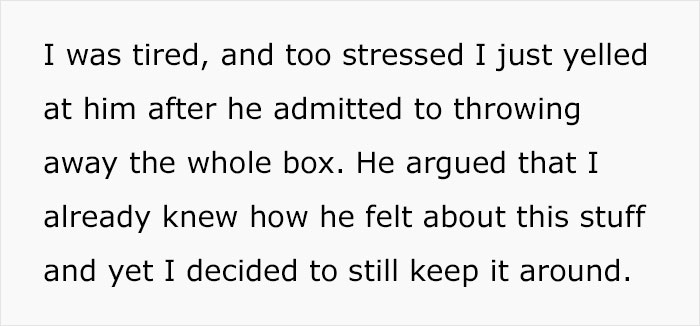

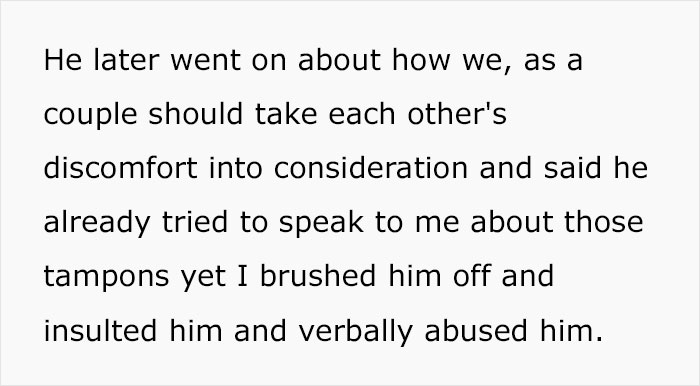


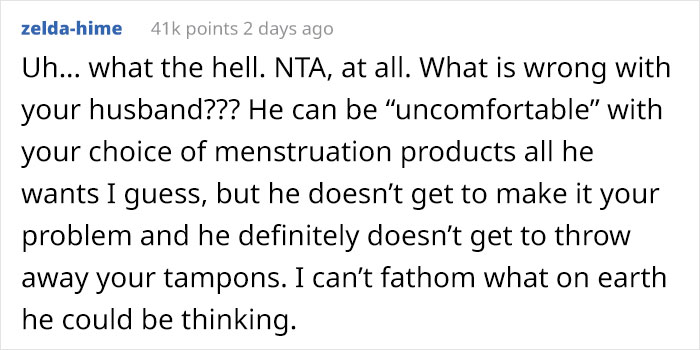




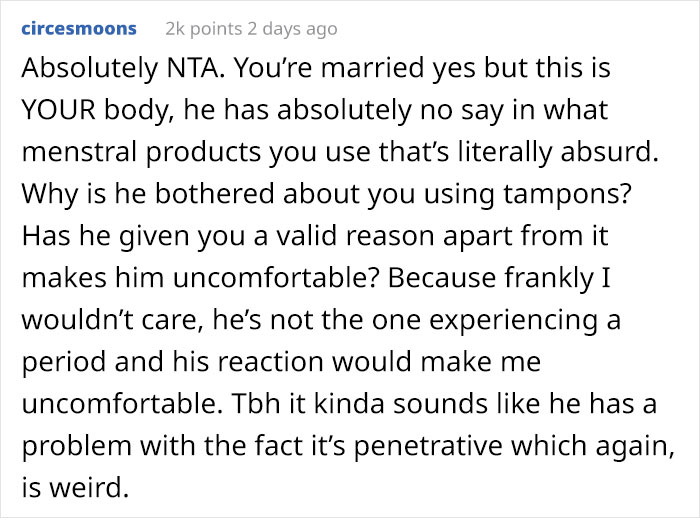
















140
190